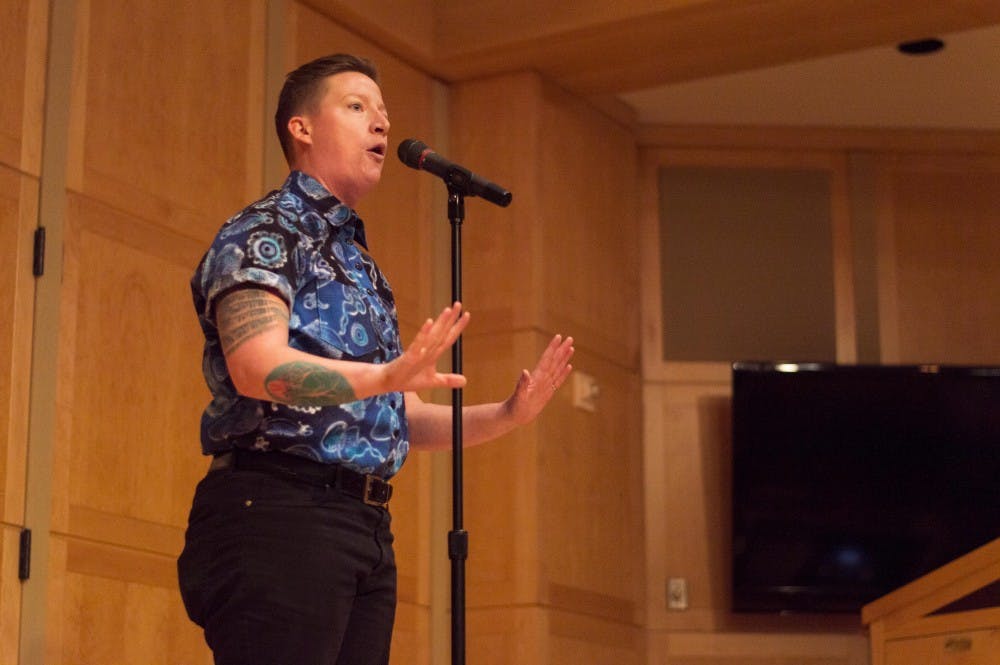Grand Rapids spoken word poet impacts students with expressive poetry

Grand Rapids spoken word poet Rachel Gleason performed with ferocity as she told her life story through poems, songs and conversation.
Using a prominent theme of strength through vulnerability in her poetry, the poet left a mark on Central Michigan University students who attended the performance Oct. 18 in the Charles V. Park Library Auditorium. Grand Rapids junior Megan Powell was one of them.
“I came tonight to branch out and experience something new and artistic and Rachel definitely did the trick,” Powell said.
Hosted by the Office of LGBTQ Services, the event began with Gleason discussing her troubled past growing up within a strict church community. She said the church was unwilling to accept her for being gay and forced her to attend gay conversion therapy.
When she was 19, Gleason mustered up the courage to stand up to her mother and controlling church leaders, leaving the church. She went on to study at Grand Valley State University. Gleason touched on the consequences of this decision, saying she lost family and friends she had grown up with.
“It’s okay to cut out toxic people,” Gleason said, “This is the time in your life where you get to make the family and friends you want.”
Gleason transitioned to discussing her broken relationship with her mother. Three poems she performed -- "Dust Bowl," "Tough Love" and "I’m Breaking Clouds" -- were about moments in Gleason’s life that impacted her relationship with her mother.
One verse in "I’m Breaking Clouds" said, “Some things are meant to be broken, like hollowed sticks and mother’s hearts.”
Following conversation of her youth, Gleason recited two poems about not fitting into society as a gay woman. Poems "Bad Boy" and "Straight Girls" reflected on Gleason’s struggle to live up to feminine standards and inability to present as masculine.
Holt sophomore Chloe Knop said she came to see the poet because she loves spoken word poetry. She said she was taken in by Gleason's powerful voice and was impressed by how the poet dissected the flawed connection between masculinity and power.
“I really related to Rachel’s poems about masculinity and power as I was a tomboy as a kid,” Knop said, “I think the message we can take away from Rachel is that hope isn’t crazy and it will actually make our lives better.”






